Neem Oil For Hair: Benefits, How To Use, And Side Effects
Learn how to use this super traditional remedy to boost your hair health!
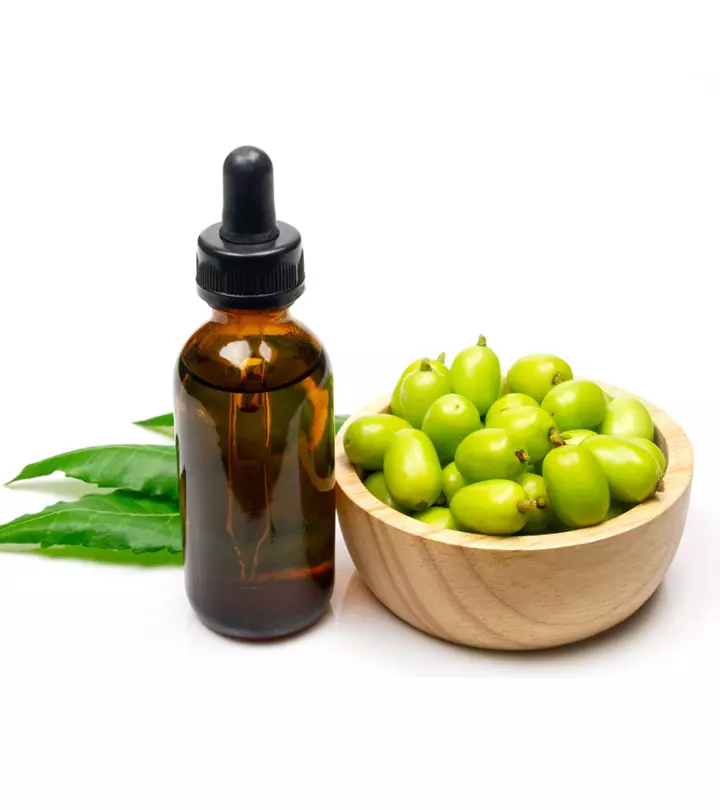
Image: Shutterstock
Neem oil for hair care is a traditional natural remedy for hair problems. Neem has countless health benefits associated with it, recorded throughout history, and is used as an Ayurvedic herbal ingredient in many traditional remedies. No wonder its oil is also touted as a treatment for scalp and hair problems. We have examined all the scientific evidence behind these claims in this article. Read on to find out how neem oil benefits your hair.
 Know Your Ingredient: Neem Oil
Know Your Ingredient: Neem OilWhat Is It?
Neem oil is extracted from the seeds of the neem tree and has been in use for centuries in traditional Ayurvedic medicine for its various health benefits.
What Are Its Benefits?
It helps with dandruff, scalp irritation, dermatitis, or head lice infestation. It reduces hair dryness and improves overall hair health.
Who Can Use It?
Anyone can use it; however, a patch test is recommended to avoid any allergic reaction.
How Often?
Twice or three times a week, diluted with carrier oil.
Caution
May cause scalp inflammation or irritation if applied undiluted or overused.
In This Article
How Is Neem Oil Good For Hair?
Parts of the neem tree have been found to possess anti-inflammatory, anti-fungal, and anti-bacterial properties (1). Today, several cosmetic industries use neem and its byproducts (including neem oil) to manufacture different hair care products.
Neem oil is extracted from the seeds of the neem tree. It may help cool the scalp and even promote smooth, shiny hair (2). The oil may also possess anti-microbial, anti-septic, and anti-dandruff properties that promote scalp health (3).
 Trivia
TriviaLet us further explore the benefits of neem oil for hair in detail.
Benefits Of Neem Oil For Hair
- May Help Treat Dandruff
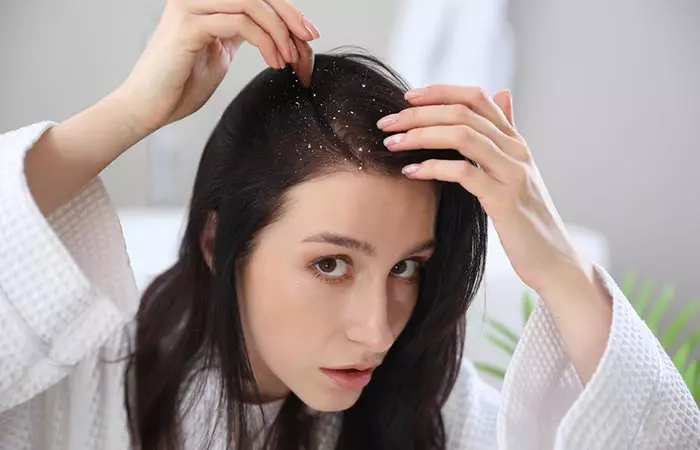
One of the active elements in neem oil is nimbidin (4). Nimbidin is known to possess anti-inflammatory properties and could help in dandruff treatment. Untreated dandruff could lead to scalp irritation and dermatitisi A general term used to describe common skin irritations, including itchy and dry skin, rashes, blisters, and crusts. . Neem oil’s anti-fungal properties make it ideal for use in a hair mask.
- May Help Eliminate Head Lice
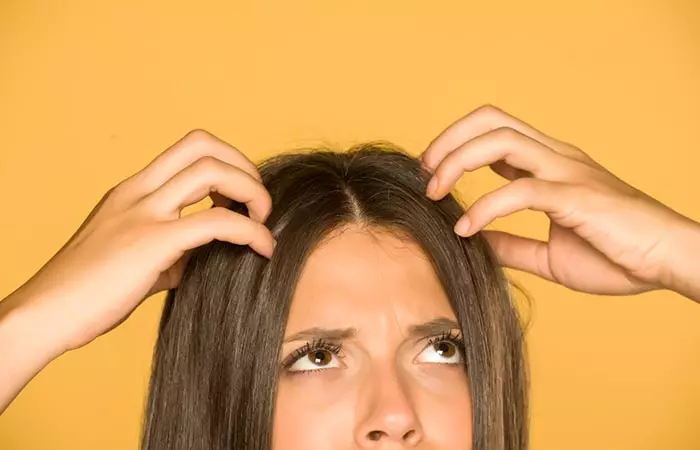
Neem also could have fungicidal action. In a study, a neem seed extract preparation was found to cure head lice infestation (5). You may use a combination of neem oil and another carrier oil to eliminate head lice.
 Quick Tip
Quick Tip- May Promote Hair Growth
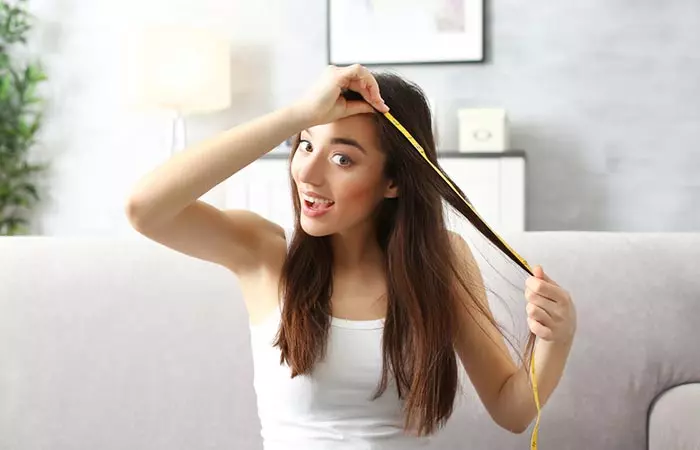
Massaging your scalp with hair oil can boost blood circulation to the scalp and promote hair growth. You can use neem oil diluted with a carrier oil for this purpose. Massaging with the oil also helps stimulate the hair follicles. However, more research with respect to neem oil and hair growth is warranted.
A YouTuber shares her experience of using neem oil and how it helped grow her hair in her video. She got this recipe from her Indian stepdad and made her hair thick and long. She says, “I’ve shared the secret oil recipe with my friends and they told me that they saw a difference after the second week (i).”
- May Fight Fungal Infections
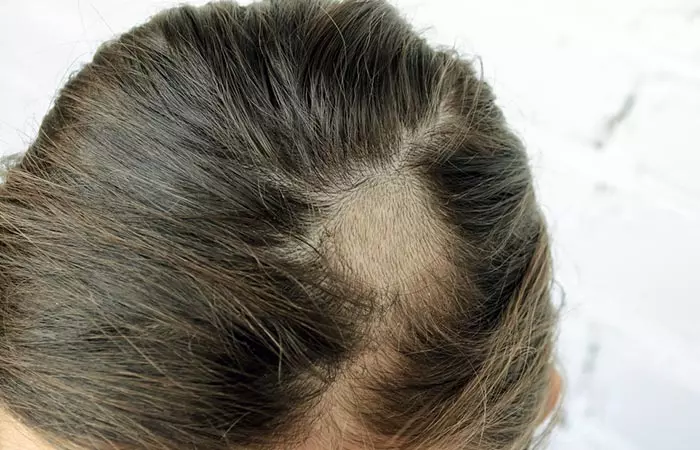
Neem oil could be effective against certain fungal infections like ringwormsi A highly contagious fungal infection that affects the skin, nail or scalp with itchy and circular rash. , athlete’s footi Fungal skin infection that occurs between the toes. The symptoms include itching, burning, and stinging. , and candidai A common yeast infection, caused by the fungus Candida, leading to redness, itching and a thick white discharge from the vagina due to a urinary tract infection. (6).
- May Help Treat Hair Dryness
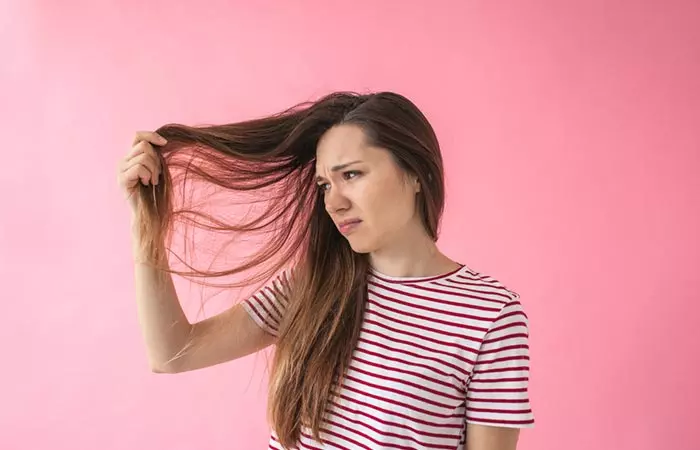
Anecdotal evidence suggests that neem oil, like most oils, may help reduce hair dryness. It also may help treat hair that is brittle and rough.
- May Reduce Hair Fall
According to anecdotal evidence, neem tree oil is a natural remedy for hair fall. It contains antioxidants, fatty acids, and antimicrobial properties that nourish the scalp, strengthen the hair follicles, and promote hair growth. Neem oil also helps reduce inflammation, dandruff, and itching, which are common issues associated with hair fall (6). Massaging diluted neem oil onto the scalp improves blood circulation, thus potentially ensuring better nutrient absorption to strengthen the hair and curb hair fall.
- May Prevent Premature Graying Of Hair
Neem oil is believed to positively affect overall scalp health. While there is limited scientific evidence specifically linking neem oil to reversing gray hair, the rich content of antioxidants, essential fatty acids, and antimicrobial properties of the oil helps maintain a healthy scalp, which is essential for preventing premature graying.
The efficacy of neem oil in promoting hair health is yet to be studied in greater detail. However, using the oil seems to offer some benefit. In the following section, we look at how you can use the oil the right way to get the best results.
How Do You Use Neem Oil For Boosting Hair Health?
A few drops of neem oil diluted with another carrier oil (like that of coconut or jojoba) is ideal. Remember to conduct a patch test before using neem oil on your hair/scalp. Apply a small quantity of neem oil to the inner side of your forearm. If you experience any redness or rashes in the next 24 hours, discontinue use and visit a doctor.
You can massage the diluted neem oil on your scalp with your fingertips. You can run the oil from the roots to the tips and leave it on overnight. You may also wash it off within an hour of application. Mixing a few drops of neem oil with your shampoo and washing your hair can also help.
However, be aware that application of the oil for longer durations may irritate your scalp. Does this mean you cannot apply the oil to your scalp? Let us find out.
Can I Apply Neem Oil Directly To Skin/Scalp?
There is limited research here. Anecdotal evidence suggests that using neem oil directly (and without diluting) on the scalp for a longer duration may lead to irritation. Consult your doctor for more information.
Does Using Neem Oil For Hair Cause Side Effects?
There is limited research in this regard. Using neem oil diluted with a carrier oil is recommended. Ensure you do a patch test prior.
Oral consumption of neem oil for any purported hair benefits is not recommended (6).
Infographic: Why Is Neem Oil Vital In Hair Care?
Neem has always been used to improve hair health since ancient times. Many cultures used neem back in the day to treat hair issues like dandruff. Hence, it only makes sense that neem oil would be added to hair care products now. Check out the infographic below for a brief recap of why you should add this oil to your hair care regimen!
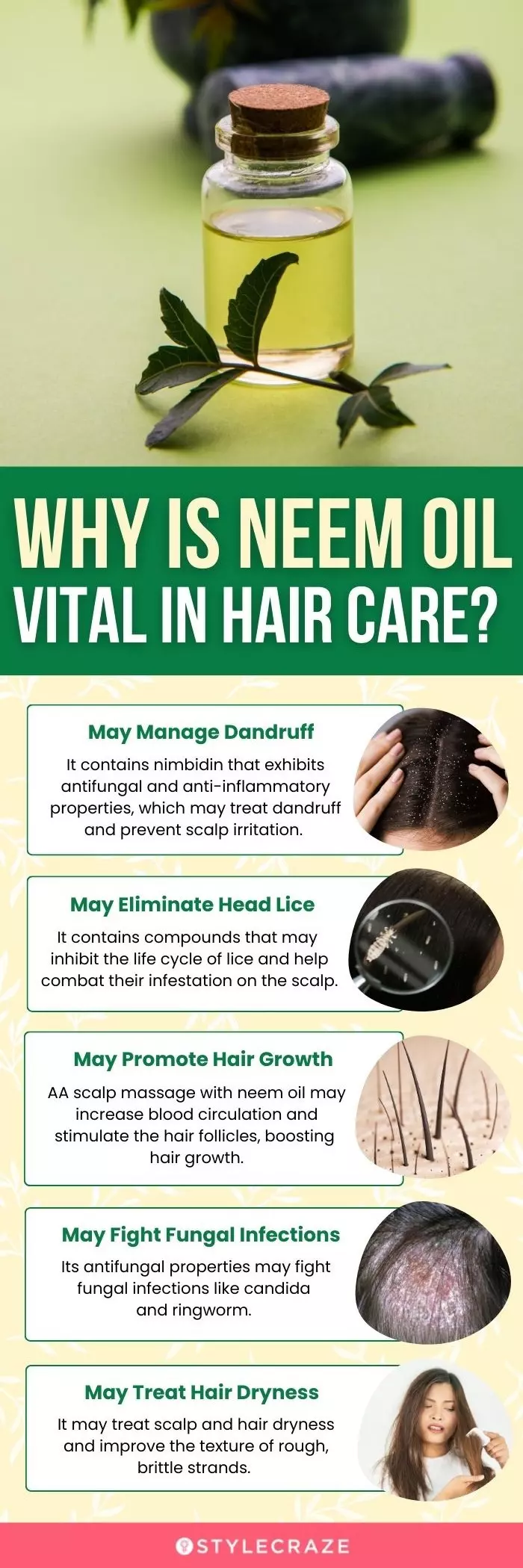
Illustration: StyleCraze Design Team
Neem oil may aid in cooling the scalp and promoting smooth, lustrous hair. It has anti-microbial, anti-septic, and anti-dandruff qualities, making it beneficial to scalp health. However, the scientific community has yet to investigate neem oil’s effects on hair. While moderate usage of neem oil is considered safe, excessive use may cause scalp inflammation. You can use neem oil twice or three times a week, diluted with a carrier oil. If you have any negative side effects, stop using it and consult a doctor immediately.
Frequently Asked Questions
How long does neem oil take to work on hair?
You can apply neem oil to your hair for an hour or longer, even overnight. Once you wash it off, you can feel a change in your hair texture. To see substantial improvement in your hair appearance and growth, you should use neem oil at least once a week consistently for 2-3 months.
Does neem oil darken hair?
Neem has antioxidant properties that may prevent your hair from becoming light due to damage. Using this oil consistently improves your hair health, which may prevent premature graying of hair.
Which neem oil is best for hair?
Opt for products that contain organic neem oil over neem oil extracts.
Can I mix castor oil and neem oil?
Yes, you can mix castor oil with neem oil. In fact, this combination of herbal oils is very beneficial for hair health.
Key Takeaways
- Neem oil, extracted from the neem tree seeds, may help soothe the scalp and stimulate the growth of shiny, smooth hair.
- Additionally, it may also help prevent dandruff, premature graying, and head lice due to its antimicrobial and antiseptic properties.
- It is recommended to dilute neem oil in a carrier oil before usage. Massage the blend on your scalp and the length of your hair, then leave it overnight.
- Applying neem oil directly on the scalp or leaving it for too long may lead to irritation. Please conduct a patch test to check for any allergies.
Illustration: Neem Oil For Hair: Benefits How To Use And Side Effects
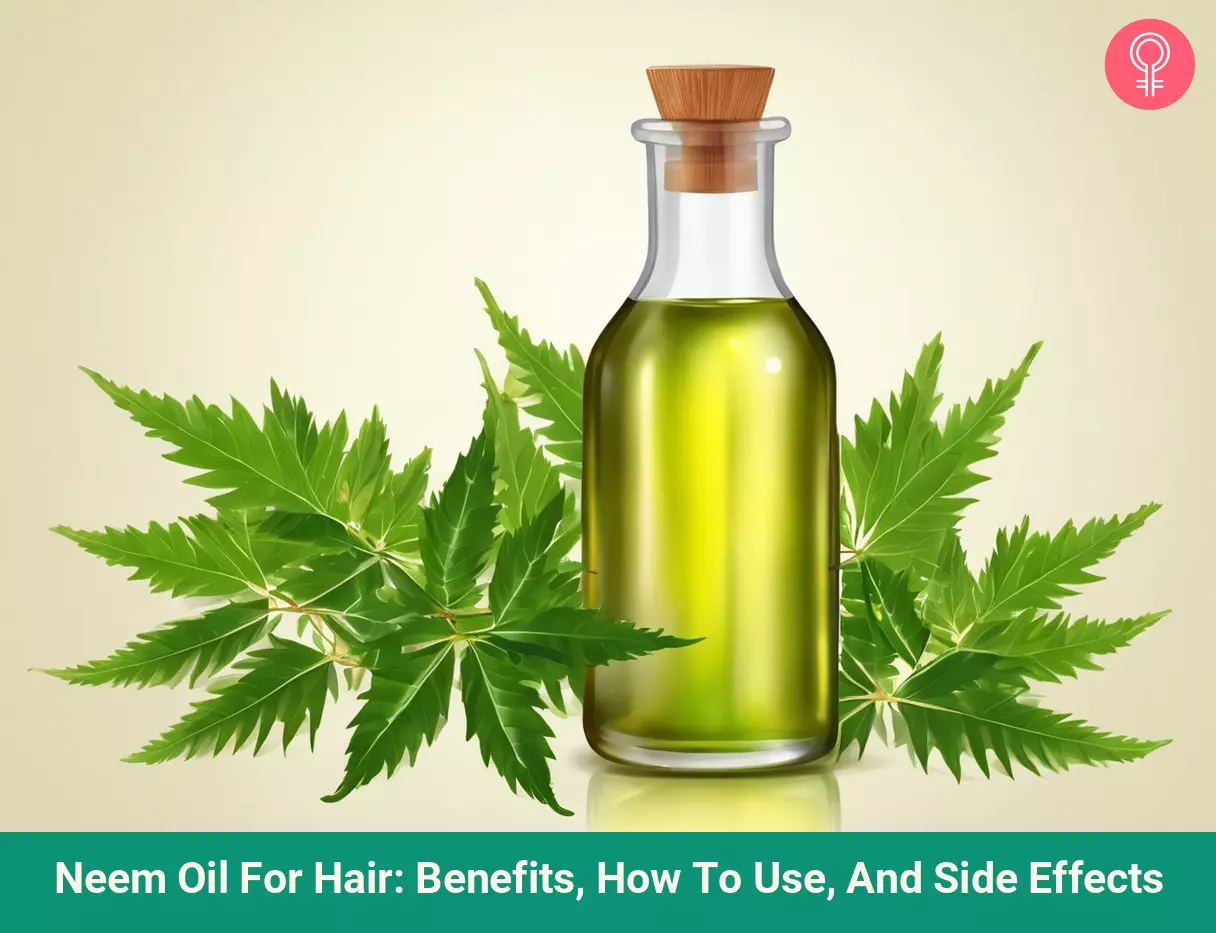
Image: Stable Diffusion/StyleCraze Design Team
References
Articles on StyleCraze are backed by verified information from peer-reviewed and academic research papers, reputed organizations, research institutions, and medical associations to ensure accuracy and relevance. Read our editorial policy to learn more.
- Beneficial Effects Of Neem Oil-An Updated Review
https://www.jpsr.pharmainfo.in/Documents/Volumes/vol8Issue08/jpsr08081613.pdf - Neem the Wonder Herb: A Short Review
https://www.researchgate.net/publication/333683177_Neem_the_Wonder_Herb_A_Short_Review - Preparation and Evaluation of Polyherbal Hair Oil- An Effective Cosmetic
https://asianjpr.com/HTMLPaper.aspx?Journal=Asian%20Journal%20of%20Pharmaceutical%20Research;PID=2018-8-1-7 - Review on pharmacological and toxicologyical effects of oleum azadirachti oil
https://www.ncbi.nlm.nih.gov/pmc/articles/PMC3761146/ - Ovicidal effects of a neem seed extract preparation on eggs of body and head lice
https://pubmed.ncbi.nlm.nih.gov/21484346/ - Neem: A Tree For Solving Global Problems.
https://www.ncbi.nlm.nih.gov/books/NBK234637/
Read full bio of Dr. Rekha Yadav
Read full bio of Ramona Sinha
Read full bio of Medha Deb







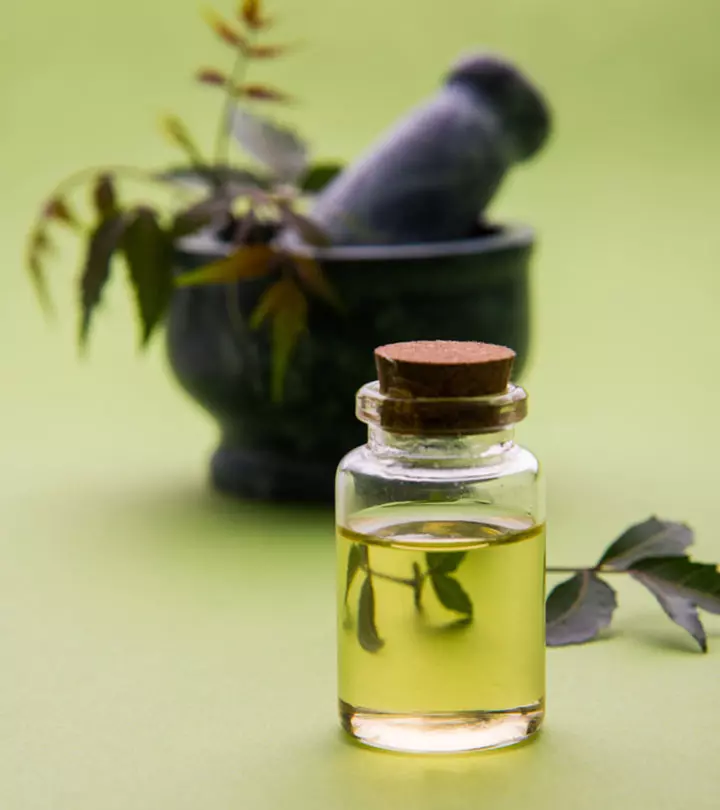
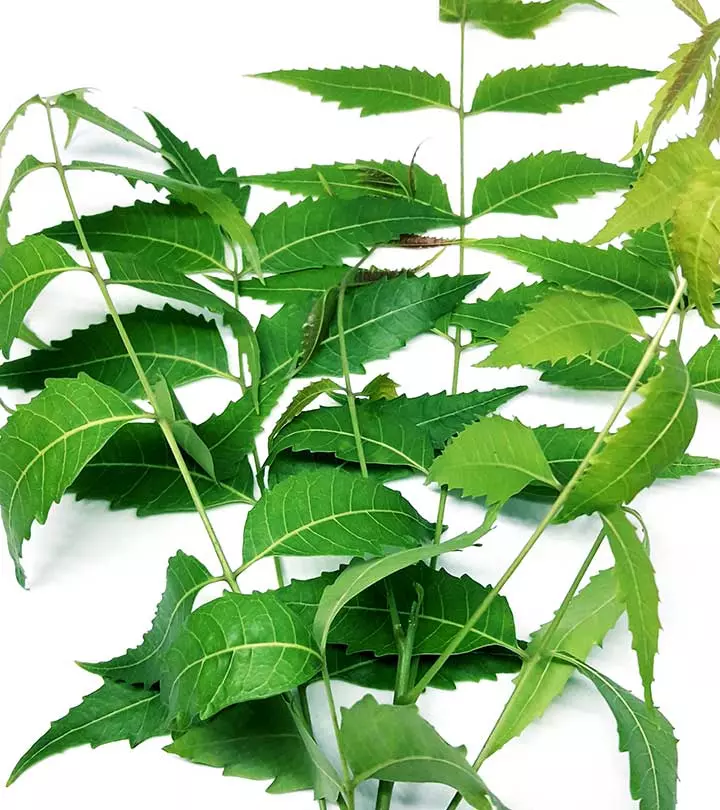

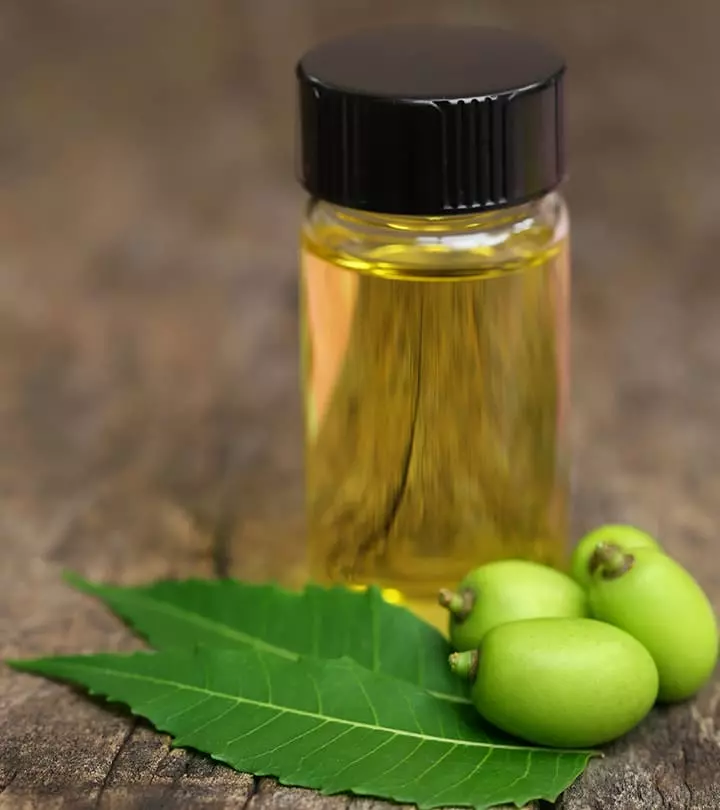


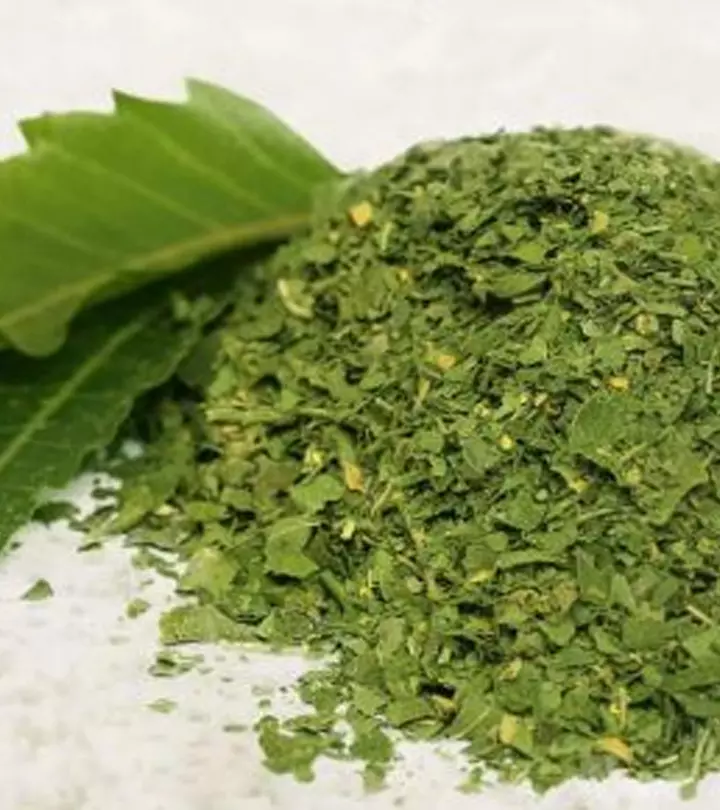
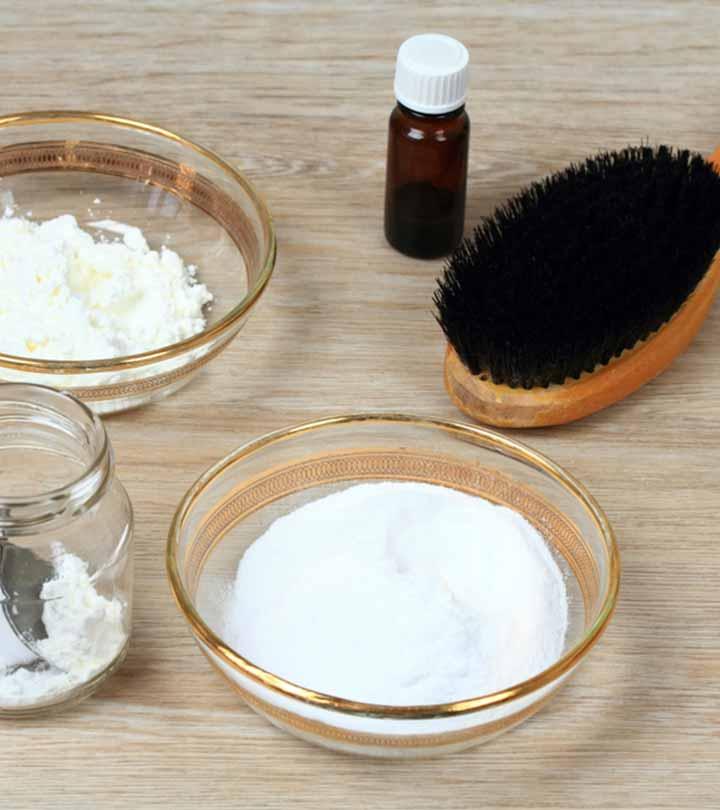



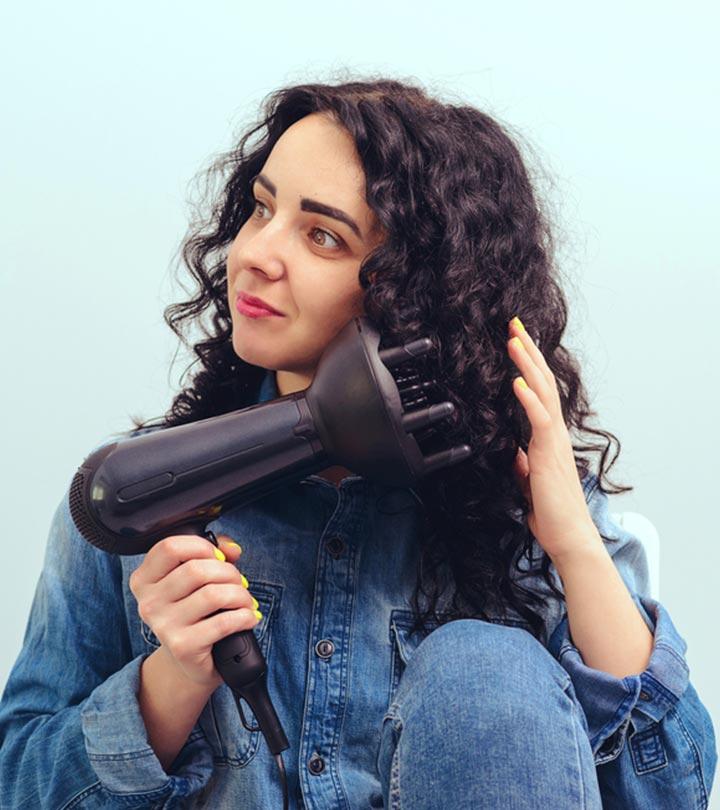




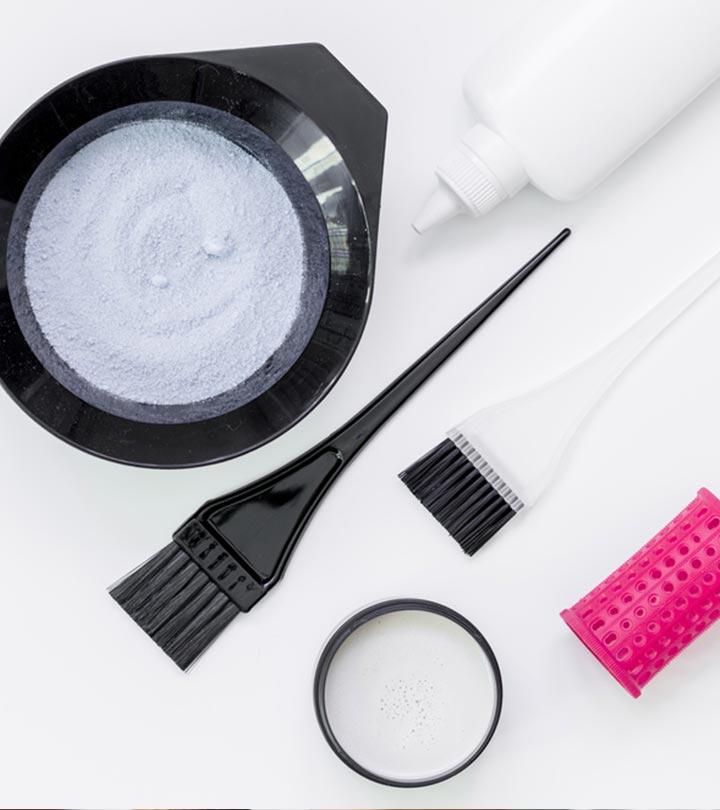


Community Experiences
Join the conversation and become a part of our empowering community! Share your stories, experiences, and insights to connect with other beauty, lifestyle, and health enthusiasts.